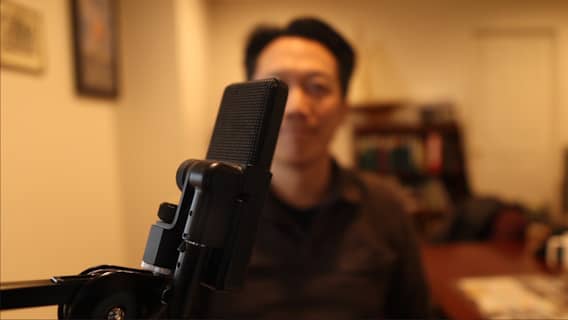After ruminating on my podcasting pet peeves (I’ll share them at the end), I searched Reddit, Twitter, and Facebook to find out what bothers podcast listeners the most. There were commonalities and upvotes that we can use to improve our podcasts. It turns out that listeners do not just want to be entertained, educated, or inspired, but they want podcast creators to respect them and their time.
Here’s what I found.

Top 10 podcast listeners’ pet peeves:
- Uneven audio levels (especially louder ads)
- Too much rambling banter at the start
- Poor audio quality
- An interviewer who interrupts their guest
- Mouth noises (lip smacks and clicks)
- Host’s lack of preparation
- Going off topic for too long
- Inside jokes
- Too many ads
- Mentioning books, articles, etc., but not including in the show notes
While I’ve heard creators say that content quality trumps audio quality, listeners’ most frequent complaints focus on uneven volume and poor audio quality. Uneven audio within a podcast episode that requires the listener to constantly adjust the volume is a big turnoff. Also, having your podcast episode too soft or too loud compared to other podcast episodes is also a problem. While commercials on television often boost the volume to make up for you heading to the kitchen for a snack, podcast listeners do not appreciate loud ads played in their earbuds. Quality is most important but do not pass on a relatively easy fix to keep your listeners happy.
Solution: Manually fix audio levels in your DAW. There are also very useful plug-ins and tools that can help.
Here are my favorites.
- Waves Vocal Rider Plugin or Waves MaxxVolume Plug-in: These are very similar and help to adjust levels on individual audio tracks or on an overall mix.
- Auphonic is a fantastic tool for leveling and normalization that uses AI-based audio algorithms.
- Izotope RX 10 Mouth De-click is a great tool for automating the removal of weird mouth noises.
Listeners want a podcast episode to deliver on its promise. That means getting to the meat of the content quickly, without too much rambling or going off-topic for a long time. If you host an interview show, this requires preparation so that you ask questions that listeners want to hear answers to, not interrupting or talking over your guest, and not spending too much time on inside jokes.
Solution: Follow the British Army adage: Proper Planning and Preparation Prevents Piss Poor Performance. Follow the 7 Ps and the payoff will be a stronger podcast.
My (Maybe Controversial) Podcasting Pet Peeves
- Big microphone – Not sure if I’m in the minority here but the proliferation of big microphones onscreen bothers me. I’m all for great audio and understand that being close to the microphone / proper technique helps a lot; but for some reason, I do not like it when the microphone dominates the visual. Perhaps I’m just realizing that I’m a podcasting pacifist and protesting against the microphone arms race.
P.S. I like the Shure SM7b but do not have one. Maybe it’s mic envy.

- Opening with, “Tell us about yourself.” – This one is controversial if you do it. My rationale for not opening with this is that I have yet to find a journalist or TV talk show host that opens with this question.
In my opinion, it is a weak way to start an interview because you’re giving up too much control. It also puts your guest in the awkward position of not knowing how long to answer. And is he or she supposed to start with personal/professional, from when they were born? It’s too open ended.
- Overusing Podcast Clichés. – Admittedly, I’m guilty of these myself but I trying to do better. You’ve got to lean into you, and that means not copying other podcasters.
Here are phrases that I’m trying to banish from my podcast:
* Without further ado
* Another questions I want to ask is…
* How are you?
* And now, let’s dive into today’s episode
* I really resonate with that
* Let’s unpack that
* I’m curious (I say this way too much!)
Let’s create better podcasts together! What is your big podcast pet peeve?
TL;DR
- Improve audio levels and normalization with plug-ins and Auphonic.
- Plan ahead to stay on topic, ask better questions, and keep your podcast episode tight.
- Try to avoid overly used podcast phrases.

